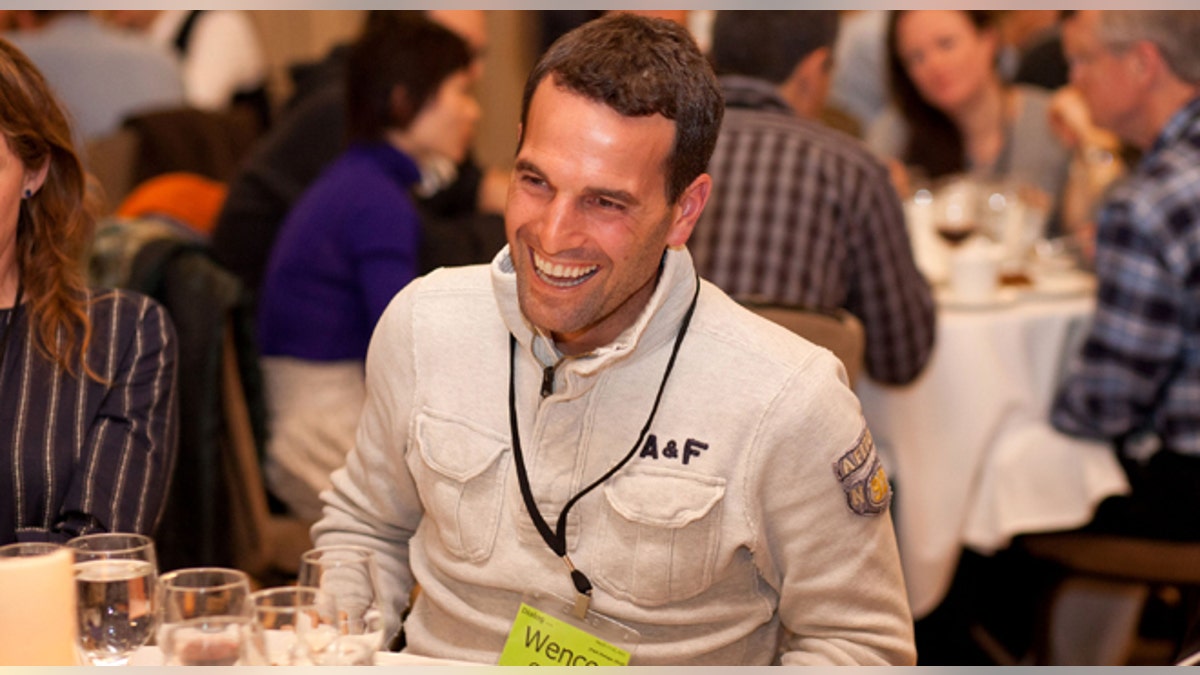
(2011 by Mark J Davis)
Millionaire tech entrepreneur and Lemon Wallet co-founder Wences Casares was 19 years old when he first visited Silicon Valley. Having grown up on a sheep farm in Argentina, the trip to the tech epicenter felt like “science fiction.”
“It blew my mind. I was inspired and told myself I need to be here every six months and I followed that rule,” said Casares, now 39.
At the time, Casares had started working on his first company, Internet Argentina, but was having trouble raising capital. The reality he was living in as a young entrepreneur in Argentina was less about ideas and more about connections.
“I would have a meeting, they would listen to me for 20 minutes, interrupt me and ask ‘who is your father, what private school did you go to?’” he said.
Internet Argentina would go on to become the country’s first Internet service provider and Casares followed that venture by starting Latin American online brokerage firm, Patagon. It was acquired by a Spanish bank, Banco Santander, for $750 million in 2000.
By some measures, Casares is a serial entrepreneur. He’s created and sold numerous companies, including Wanako Game, bought by Vivendi Games in 2007, and Lemon Bank, sold to Banco do Brasil in 2009. His latest venture, Lemon Wallet, was acquired this month by the identity theft protection company LifeLock for $42.6 million.
BEING A “DOER”
The son of sheep ranchers, Casares was raised in the Patagonia countryside of Argentina. It’s a long way away from Palo Alto, Calif. where he now resides with his wife and three children, but Casares says residents of both places share the same problem-solving mentality.
“Patagonia is very isolated. You grow up doing things every day. You need shelter, you build a house,” he said. “Being an entrepreneur is a fancy, glamorous way of saying that you’re a doer.”
Casares made his way from Patagonia to Buenos Aires, studying business administration at the University of San Andrés. It was in Buenos Aires where nonprofit Endeavor co-founder and CEO Linda Rottenberg met Casares, then 24 years old. Endeavor was seeking to spur economic growth in emerging markets by supporting local entrepreneurs without access to venture capital or a startup ecosystem.
Rottenberg recalls meeting Casares in a nondescript building in Buenos Aires. Patagon had four employees and four computers.
“Wences had started a couple of businesses and had this idea and everyone thought he was insane. He had been turned down by 34 local investors when we met him,” she said.
But Rottenberg was moved by Casares’ tenacity, spirit and kindness. “I knew he was on to something big,” she said.
Endeavor bet on Casares’ vision for Patagon by selecting him out of hundreds of applicants to participate in its mentorship program. There he learned how to put together a business plan, interview and organize a road show to raise money.
It was a bet that paid off for Endeavor — Patagon’s acquisition by Banco Santander remains the most lucrative exit in its history. The organization has since expanded beyond emerging markets and into the U.S. and other developed countries, building ecosystems that support entrepreneurs in cities where it’s not naturally occurring.
Casares is still involved with the organization, investing in several Endeavor Entrepreneur firms, serving as a mentor to aspiring entrepreneurs and sitting on Endeavor’s board.
“Wences has continued to be such a pioneer and role model not only in the (Latin America) region, but all over the world,” Rottenberg said. “He embodies this ‘pay it forward’ spirit that tells our entrepreneurs if they want to make a lasting impact, it’s not enough to create jobs and achieve great exits. It’s important to inspire and mentor the next generation.”
BEING AN ENTREPRENEUR
Having experienced both success and failure, Casares admits it’s the failures that make up most of his “entrepreneurial DNA.”
“With success, you think everything you did contributed to it, when in truth, 20 percent was right and 80 percent was wrong, but you cannot tell,” he said. Failure gives you “an incredible intellectual honesty and you can very clearly see what contributed to that failure.”
His advice to young entrepreneurs is to “do something that you love, that’s truly your passion, and for hard decisions, follow your instinct. Even if you’re wrong, you won’t regret it as much as not following your instinct.”
Still, he doesn’t gloss over the difficulties of starting a company. “It’s hard work, there’s anxiety and frustration.” The sense of obligation and responsibility to produce results for investors can at times feel like a burden for some entrepreneurs, he added.
ROOTED IN WHO HE IS
Despite his success, Casares remains rooted in who he is and where he came from, Endeavor’s Rottenberg said.
One way Casares maintains those roots is by setting aside one week each year for a trip with eight childhood friends from Patagonia. The group bought a public transportation bus, stripped the seats and uses it to travel to a new location each year.
“It’s like we were kids,” Casares said. “The idea is that over 20 to 30 years, we will take it all over the world.”
Follow us on twitter.com/foxnewslatino
Like us at facebook.com/foxnewslatino







































